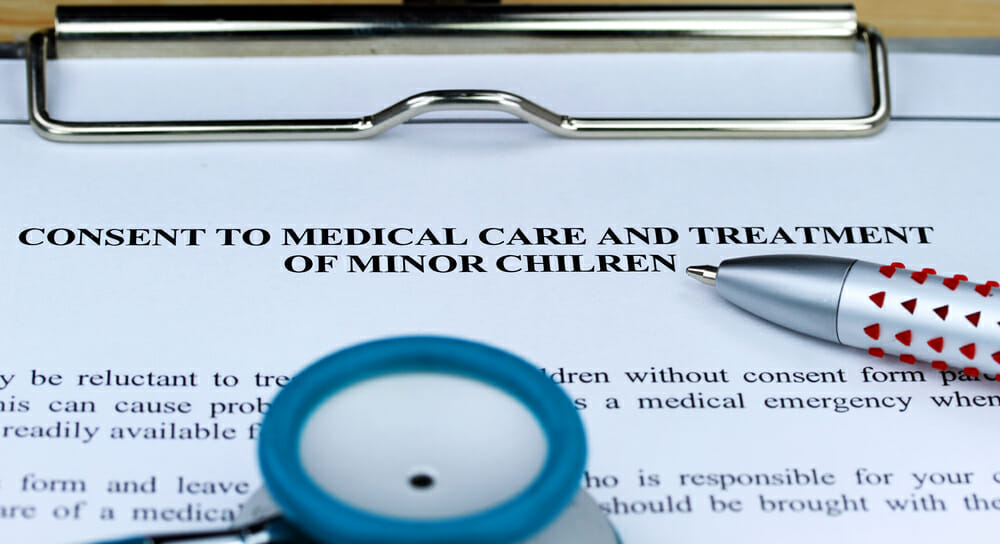Ever thought about how medical consent works for children? It’s more than just a formality; it’s a crucial part of ensuring their safety and well-being during medical care. In this article, we’ll delve into the details of a medical consent form for minors, the legal and ethical considerations involved, and why it’s important for you to understand. We’ll guide you through the essential points for parents or guardians to grasp the world of medical consent for children!
What is Medical Consent?
Let’s start with the basics. Medical consent is the permission given by a patient (or their guardian) for a medical procedure or treatment. It ensures that everyone involved understands what’s happening, the risks involved, and the potential benefits.
Two types of consent exist: informed and implied. Informed consent is when you, as a parent or guardian, explicitly approve a specific treatment after being educated about all its aspects. Implied consent, on the other hand, occurs when consent is assumed based on the circumstances, such as taking your child to the emergency room for a broken arm.
Consent is crucial as it safeguards everyone’s rights and autonomy. It also fosters open communication among you, your child, and the healthcare team, ensuring everyone is aligned and working together for the best possible outcome.
Informed Consent Process for Minors
Now, let’s discuss the informed consent process for minors. It’s vital to involve them and ensure they feel heard, but how does it work?
Firstly, the healthcare provider will explain the proposed treatment or procedure, its benefits, risks, and any alternatives. They will ensure that both you and your child comprehend everything, so don’t hesitate to ask questions or raise concerns.
Next, your child will have a say. Healthcare providers should engage minors in the decision-making process, considering their age, maturity, and ability to grasp the information. The goal is to empower them and make them active participants in their healthcare journey.
Ultimately, you, as the parent or guardian, will provide consent on behalf of your child. Remember, it’s crucial to discuss the treatment plan with your child and make decisions together, taking into account their thoughts and feelings.
Throughout this process, clear communication is key. Healthcare providers play a significant role in ensuring everyone is informed. Therefore, maintaining an open dialogue, asking questions, and ensuring both you and your child are comfortable with the decisions made about their health are essential.

Special Considerations
Generally, minors under 18 require parental or guardian consent for most medical treatments. However, there are exceptions, as with many things in life. Let’s explore a few examples:
- Mental health treatment – In some cases, minors can consent to mental health services without involving parents, ensuring access to support when needed, especially in situations where parental involvement may not be best.
- Reproductive health – Minors may have the authority to make decisions regarding reproductive healthcare, like birth control or testing for sexually transmitted infections, to maintain privacy and encourage seeking necessary care without judgment.
- Substance abuse treatment – Some minors can seek substance abuse treatment without parental consent to remove barriers for those needing help but hesitant to involve parents.
Now, let’s discuss emancipated minors. These are individuals legally declared independent from their parents or guardians, typically due to marriage, military service, or other circumstances. Emancipated minors have adult-like rights when it comes to consenting to medical treatment.
Lastly, there’s the concept of a “mature minor.” In certain scenarios, a minor showing adequate maturity and understanding of a medical decision may be permitted to consent to treatment without parental involvement. This allowance can vary based on local laws, specific circumstances, and regulations in your area.
While the standard practice is for parents or guardians to provide consent for minors, there are exceptional cases where young individuals can make their healthcare decisions. Understanding these situations and how they may affect your family is vital. Keep in mind that the age of consent for medical treatment may vary by location, so be aware of your local laws and regulations.


















